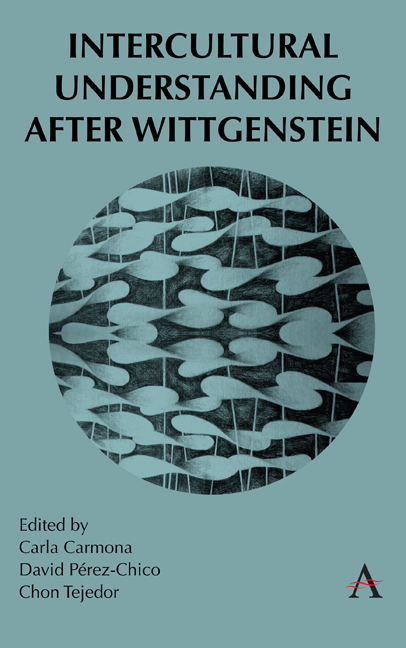Chapter 3 - Situated Judgements as a New Model for Intercultural Communication
Published online by Cambridge University Press: 14 November 2023
Summary
Introduction
This chapter draws on the insight that intercultural dialogue (ICD) is possible because it actually occurs. In that sense, we depart from those models that approach ICD as a rare thing, a complex phenomenon in which proper understanding hardly occurs, or as something altogether impossible (see Rorty 1983). Instead of approaching intercultural communication as the miraculous product of exchanges between the worldviews of communities that are far apart from one another, we have in mind actual linguistic practices within contemporary societies that may involve the recognition that the other party has completely different principles – whether they be epistemic, ethical or aesthetic. We converse with our bosses, we purchase something at a store, we contact the bank or we discuss personal matters with our loved ones – all of this with people from potentially radically different backgrounds. Most of these linguistic exchanges come about just perfectly – at no point are we hopelessly impeded by our different principles. ICD is a pervasive phenomenon, fortunately so; it is not the miracle that some seem inclined to believe that it is, and this intuition is the foundation of this chapter.
Moreover, this chapter is primarily motivated by the idea that intercultural communication is analogous to other common phenomena. Some of our disagreements can be settled by appealing to some or other factual smoking gun: some piece of empirical information that can be obtained through a finite number of steps. Others, nevertheless, prove to be difficult to settle by means of debates or data – they seem to be particularly persistent or ‘faultless’. Many disputes about the things we care the most about fall into the second group; they are exchanges between interlocutors equipped with different sets of reasons, holding reasonable but conflicting attitudes. A recent attempt to capture the nature of these disagreements, one that aims to de-idealize the common examples of these matters, argues that judgements are always situated, both so-called brute judgements and rule-governed judgements (Kinzel and Kusch 2018). Situated judgements allow these authors to explain how this second group of disagreements between parties who hold different standards can be persistent and rational.
- Type
- Chapter
- Information
- Intercultural Understanding after Wittgenstein , pp. 37 - 58Publisher: Anthem PressPrint publication year: 2023

